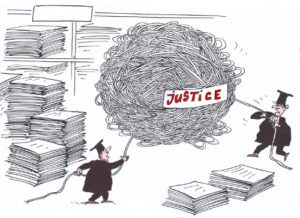Leading Iraqis Get Practical
If one were to ask President Bush to make sense of his strategy in Iraq, he would likely suggest that by providing stability, the Iraqi government could work toward reconciliation and an end to sectarian bloodletting, but according to several key Iraqi leaders, that just isn't going to happen. Better, they argue, to focus on the basics of governing and providing services that Iraqis continue to suffer without.If one were to ask President Bush to make sense of his strategy in Iraq, he would likely suggest that by providing stability, the Iraqi government could work toward reconciliation and an end to sectarian bloodletting, but according to several key Iraqi leaders, that just isn’t going to happen. Better, they argue, to focus on the basics of governing and providing services that Iraqis continue to suffer without.
Your support matters…Washington Post:
For much of this year, the U.S. military strategy in Iraq has sought to reduce violence so that politicians could bring about national reconciliation, but several top Iraqi leaders say they have lost faith in that broad goal.
Iraqi leaders argue that sectarian animosity is entrenched in the structure of their government. Instead of reconciliation, they now stress alternative and perhaps more attainable goals: streamlining the government bureaucracy, placing experienced technocrats in positions of authority and improving the dismal record of providing basic services.
“I don’t think there is something called reconciliation, and there will be no reconciliation as such,” said Deputy Prime Minister Barham Salih, a Kurd. “To me, it is a very inaccurate term. This is a struggle about power.”
Independent journalism is under threat and overshadowed by heavily funded mainstream media.
You can help level the playing field. Become a member.
Your tax-deductible contribution keeps us digging beneath the headlines to give you thought-provoking, investigative reporting and analysis that unearths what's really happening- without compromise.
Give today to support our courageous, independent journalists.






You need to be a supporter to comment.
There are currently no responses to this article.
Be the first to respond.